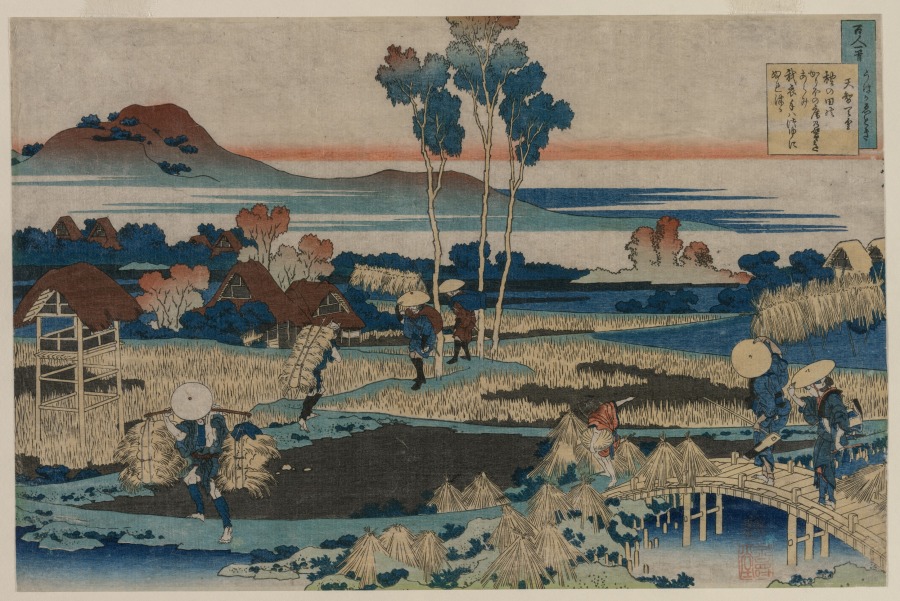| schema:description 10 | "culture: Japan, Edo Period (1615-1868)" |
| schema:description | "technique: color woodblock print" |
| schema:description | "collection: Japanese Art" |
| schema:description | "inscription: Signature: Zen Hokusai (trimmed)
Artist Seal: Manji (trimmed)
Publisher: Nishimuraya Yohachi (Eijudo)
Censorship Seal: Kiwame...(more)" |
| schema:description | "creditline: Gift of Mr. and Mrs. J. H. Wade" |
| schema:description | "id: 95413" |
| schema:description | "wall_description: This autumn landscape with rice farmers and travelers is from Katsushika Hokusai’s series of prints inspired by the anthology <em>One Hundred Poems by One Hundred Poets</em> (<em>Hyakunin isshu uba ga etoki</em>). While traveling through the countryside, like the two figures in the center, a sudden storm forced the Emperor Tenchi (reigned 661–72) to take shelter in a rice farmer’s hut. The experience produced tears of sympathy for the common people toiling under heavy burdens and living in rough, flimsy homes.<br><br>The poem at the upper right next to the cartouche reads:<br>Lying on the rough<br>Mats of rice-harvest guards<br>In the autumn fields,<br>I find the sleeves of my robe wet.<br>Is the dew so heavy?...(more)" |
| schema:description | "tombstone: Poem by Emperor Tenchi, from the series One Hundred Poems by One Hundred Poets Explained by the Nurse, 1835-36. Katsushika Hokusai (Japanese, 1760-1849). Color woodblock print; sheet: 24.4 x 37 cm (9 5/8 x 14 9/16 in.). The Cleveland Museum of Art, Gift of Mr. and Mrs. J. H. Wade 1916.1164...(more)" |
| schema:description | "type: Print" |
| schema:description | "measurements: Sheet: 24.4 x 37 cm (9 5/8 x 14 9/16 in.)" |

